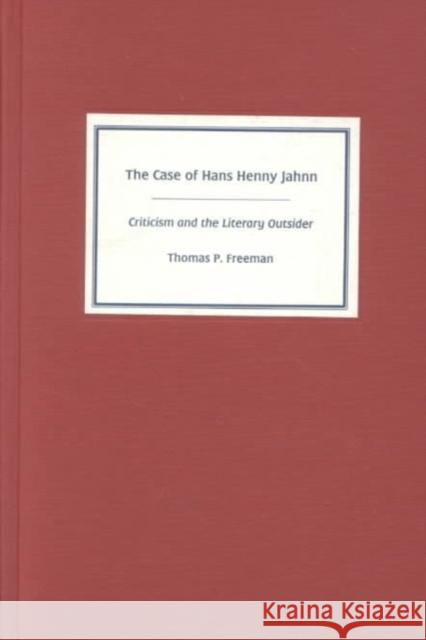The Case of Hans Henny Jahnn: Criticism and the Literary Outsider » książka
The Case of Hans Henny Jahnn: Criticism and the Literary Outsider
ISBN-13: 9781571132062 / Angielski / Twarda / 2001 / 279 str.
Hans Henny Jahnn (1894-1959) is one of Germany's most controversial modern authors, in large part due to sharply diverging reactions to the depictions of sado-masochistic brutality, incest, and homoeroticism in his plays and novels. Jahnn's rank as a writer has long been a topic of intense debate between rival schools of critics, and his works have provoked extreme responses, both positive and negative, from a wide spectrum of scholars, writers, and critics, including such prominent figures as Alfred Dblin, Walter Benjamin, Thomas and Klaus Mann, Wolfgang Koeppen, Walter and Adolf Muschg, Wilhelm Emrich, Hubert Fichte and many others. Freeman focuses on characteristic examples of different approaches to Jahnn: structuralist, psychoanalytic, Jungian-archetypal, Marxist, biographical, literary-historical, postmodern, gay, and feminist. Freeman shows how behind the veil of objectivity, literary scholars often have a hidden agenda that is based on an emotional reaction to Jahnn's portrayal of homosexuality and violence, his negative images of women, and his worldview, which some critics have linked to some of the same ideological presuppositions as those of National Socialism. This is the first full-length study of Jahnn criticism.Thomas Freeman is associate professor of German at Beloit College, Beloit, Wisconsin.











